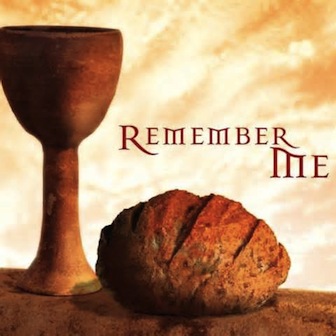When I was a kid, I decided one Sunday during communion service to partake of the elements without approval from my father. I’ll never forget that day. For one, I got in trouble because I did something I wasn’t supposed to do and for two, I learned the importance of taking communion. I believe (we never talked about it) my father’s anger and frustration came from this passage. I didn’t take communion “properly.” I say properly very lightly because I’m still alive and God didn’t smite me. However, as we read Paul’s exhortation about the Lord’s Supper, I can see how important it is to understand what it is that you are doing and to not take the Lord’s Supper lightly.
1 Corinthians 11:24-34
24 and when He had given thanks, He broke it and said, “This is My body, which is for you; do this in remembrance of Me.” 25 In the same way He took the cup also after supper, saying, “This cup is the new covenant in My blood; do this, as often as you drink it, in remembrance of Me.” 26 For as often as you eat this bread and drink the cup, you proclaim the Lord’s death until He comes. 27 Therefore whoever eats the bread or drinks the cup of the Lord in an unworthy manner, shall be guilty of the body and the blood of the Lord. 28 But a man must examine himself, and in so doing he is to eat of the bread and drink of the cup. 29 For he who eats and drinks, eats and drinks judgment to himself if he does not judge the body rightly. 30 For this reason many among you are weak and sick, and a number sleep. 31 But if we judged ourselves rightly, we would not be judged. 32 But when we are judged, we are disciplined by the Lord so that we will not be condemned along with the world. 33 So then, my brethren, when you come together to eat, wait for one another. 34 If anyone is hungry, let him eat at home, so that you will not come together for judgment. The remaining matters I will arrange when I come.
In verse 28, the part about examining yourself intrigued me. The church I grew up in dedicated an entire Sunday service every month to taking communion. There was always a very long pause before taking each element for self-examination. When I started attending our church that we are currently members of in the U.S., I was suddenly surprised with communion every week before or after the service. I didn’t like it, it rubbed me the wrong way, and I was convinced we wouldn’t be attending that church much longer. Needless to say, YCC is now our family and I have gotten over that part of my internal theological struggle.
The word “examine” here is from the Greek okimazo which refers to testing “to see whether a thing is genuine or not.” This is congruent with what Paul said earlier, that it is about a spiritual connection in remembrance of what Christ has done for us, not a snack to hold you over until lunch or an opportunity to eat bread and get drunk on the wine. Paul isn’t saying that the Corinthians have physical issues because they eat bread and drink wine, rather that they are spiritually weak because they are missing the point. They have begun to focus on the physical elements of the Lord’s Supper instead of remembering why they are doing it and for whom they are to do it.
My view of the Lord’s Supper, quite honestly, has been a roller coaster. Each church I have been to does it differently, yet I haven’t found a biblical basis to decide if any of these ways are “wrong.” This is because it’s not about how they serve the elements, what they use (our church in Guatemala used grape soda last week), or how often they do it! I’ve been missing the point just like the Corinthians were. It’s about what Paul says in verse 26: proclaim the Lord’s death until He comes. It’s about reminding ourselves of the sacrifice of Christ. It’s about remembering how much we need Him in our lives. It’s about never forgetting what happened on the cross and the ultimate sign of love and sacrifice.
Sometimes it is easy to lose the significance of what happened that day on Calvary. I just realized a little more how heavy the cost was of our sinfulness. In reading throughout the 4 counts of the Gospel, we can see how connected Jesus was with God the Father. Yet on that day, when He bore our sins, he felt as if He was without the Father. Paul’s explanation of judging ourselves so we are not judged with the world is along these lines; we must test and exhort and reprove ourselves because if we do not, we will find ourselves separated from the Father and feeling alone and without love in our lives. This is what leads to destruction because we work so hard to fill that void but nothing fits.


